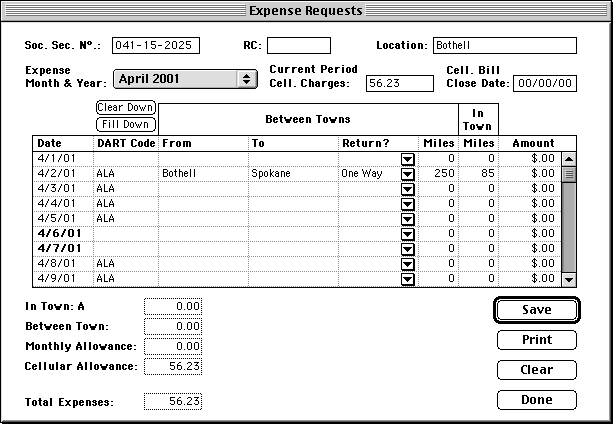
|
We wrote an application called “Spenser” for the Yellow Pages division of US WEST in 1996. The division was facing the problem of being overwhelmed by the number of expense reports being submitted by their sales force. In addition to the sheer number of reports being submitted by their sales agents, they faced the issue of inadequate control — every expense report had to be checked by hand to ensure that the expenses claimed for each day were valid and were accurate. With a sales staff that exceeded 300 personnel, each of whom could submit over 20 expense report line items per month, the cost of processing all of the documents was spiralling out of control. They called us — here’s what we did. |
|
Expense Reporting using “Spenser” |
|
|
We discussed possible architectures with our customer. Since we had had a working relationship with people in the division since 1991, they were familiar with the solutions that we had delivered and they liked the idea of using 4D Server since it had proven to be an inexpensive, reliable solution. We narrowed the technical solution to two options — setting up a website that would allow sales reps to log in and update their records or creating a stand alone application so that the sales reps could have the data on their laptops and then log on to the Internet and upload the information. |
|
“Spenser” Interface |
|
|
The screenshot below shows the user interface for Spenser (remember — this application was written in 1996 for the Macintosh). The user can select a month and year to enter data and the grid control in the center of the screen is updated to contain one line for each work day in the month. You will note that weekends are highlighted in bold face type and are not enterable. The user can enter the appropriate region codes and city names and the amount due is calculated in real time. After the records are saved, they are transmitted to the server by selecting the “Send Expenses" menu item. Data is transmitted very quickly, even over a dialup connection, since Spenser compresses data before it’s transmitted. |
